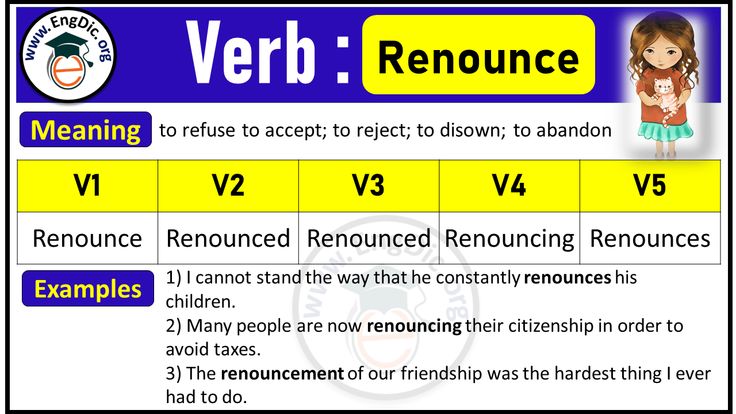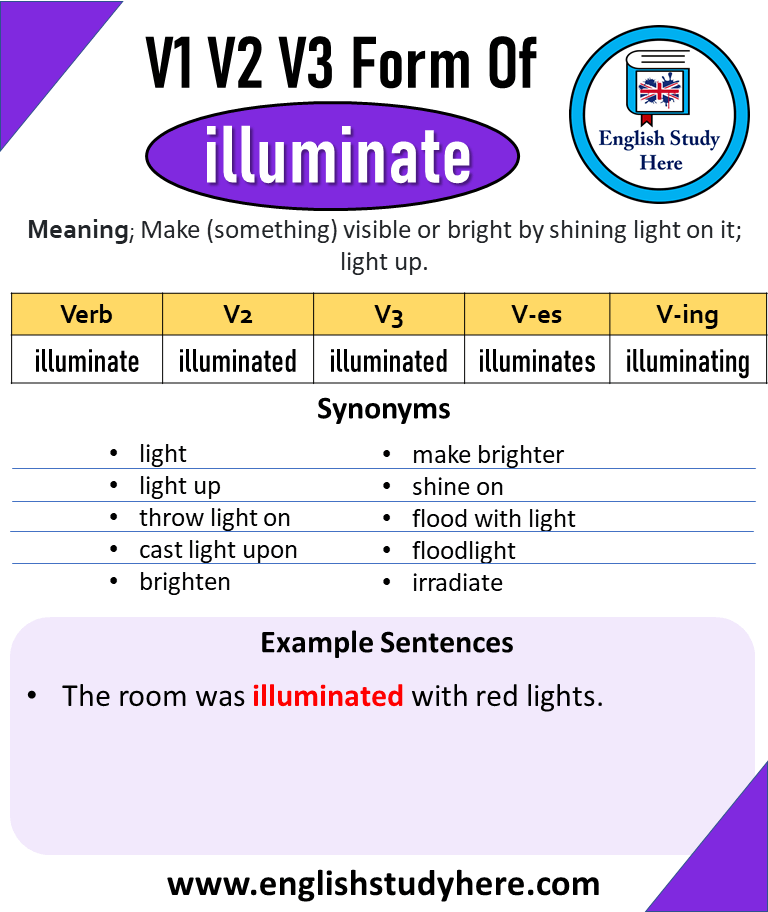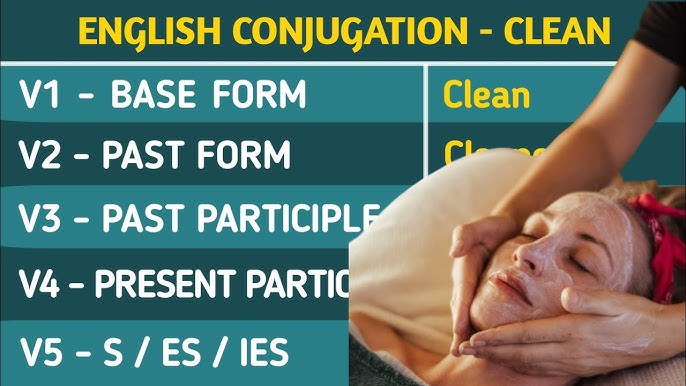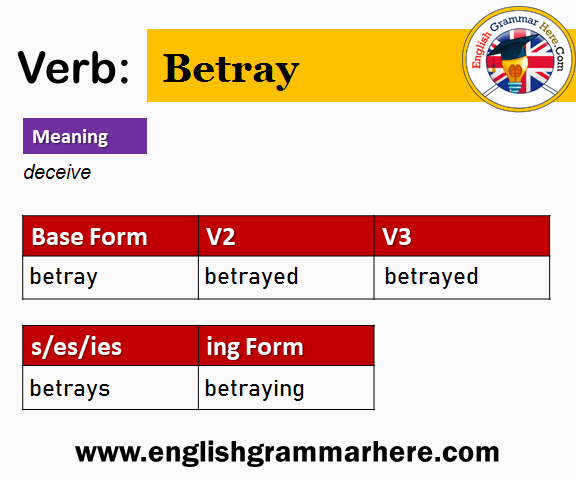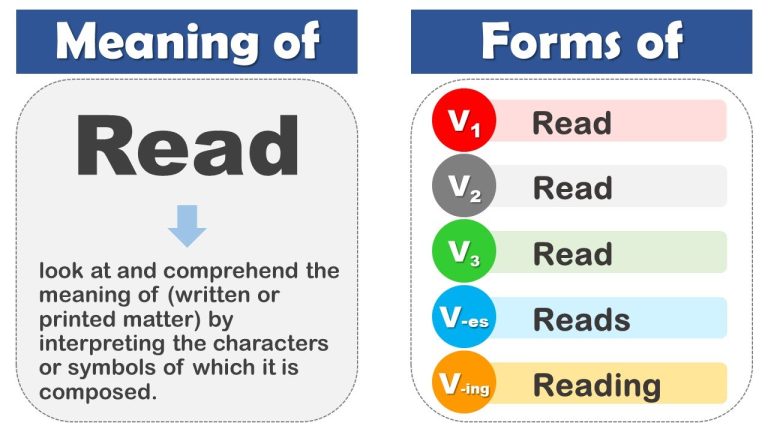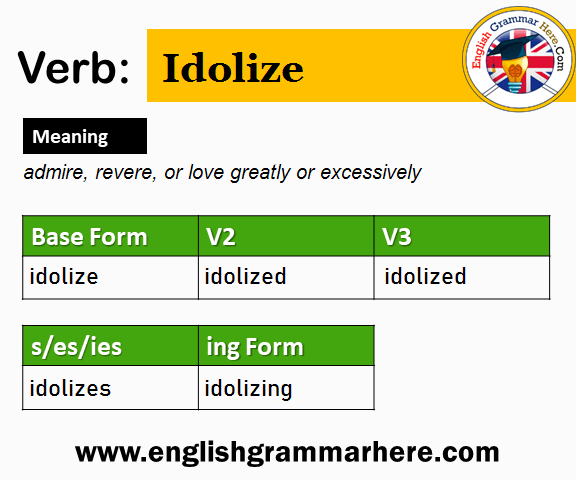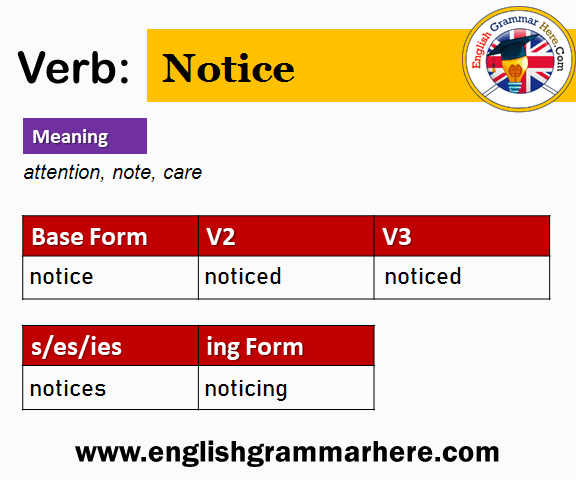Renounce Past And Past Participle Form V1 V2 V3 V4 V5 Form of Renounce
Are you struggling to understand the different forms of the verb “renounce”? You’re not alone.
Whether you’re a student trying to ace your English exam or a writer wanting to add more depth to your prose, knowing the V1, V2, V3, V4, and V5 forms of “renounce” can be a game-changer. Imagine being able to convey your thoughts more precisely and with greater impact.
This knowledge doesn’t just improve your grammar; it can transform how you communicate, making your writing and speech more compelling and effective. Dive into this article to explore the past and past participle forms of “renounce,” and discover how mastering these can elevate your language skills to a whole new level.

Credit: theenglishdigest.com
Forms Of Renounce
The word “renounce” means to give up something. Here are its forms:
| Form | Word |
|---|---|
| V1 | Renounce |
| V2 | Renounced |
| V3 | Renounced |
| V4 | Renouncing |
| V5 | Renounces |
People use different forms based on time. Present uses V1. Past uses V2. V3 is for perfect tenses. V4 is for continuous actions. V5 is for third person singular.
Usage Of Renounce In Sentences
Renouncemeans to give up something. It can be an idea or a title. The word changes form based on tense. Here are the forms: V1 is “renounce”, V2 is “renounced”, and V3 is “renounced”. V4, “renouncing”, is used in continuous tenses. V5, “renounces”, is for third person.
- She renouncesher title today.
- He renouncedhis claim last year.
- They are renouncingtheir old ways now.
| Verb Form | Example Sentence |
|---|---|
| V1 | They renouncetheir rights. |
| V2 | She renouncedher position. |
| V3 | The rights were renounced. |
| V4 | He is renouncinghis beliefs. |
| V5 | She renouncesher claim now. |
Common Mistakes With Renounce Forms
Many people struggle with the different forms of renounce. The base form is renounce. The past form changes to renounced. The past participle also uses renounced. This can be confusing.
The continuous form is renouncing. Mistakes happen when people use the wrong form. People might say “renounceing” instead of renouncing. It’s simple but easy to mix up.
Learning these forms helps in writing and speaking. Mistakes in forms can change meanings. A correct sentence is: “He is renouncinghis old habits.” Avoid saying “He renouncehis old habits.”
| Form | Example |
|---|---|
| Base | renounce |
| Past | renounced |
| Past Participle | renounced |
| Continuous | renouncing |

Credit: engdic.org

Credit: www.scribd.com
Conclusion
Mastering the forms of “renounce” enhances your English skills. Simple steps can make a big difference in speaking and writing. Practice the V1, V2, V3, V4, and V5 forms. It helps you express ideas clearly. Consistent practice builds confidence in using this verb.
Remember, learning a language is a journey, not a race. Take your time and repeat what you’ve learned. The more you practice, the better you become. Make learning a fun part of your daily routine. Keep exploring and growing your vocabulary.
Happy learning!
